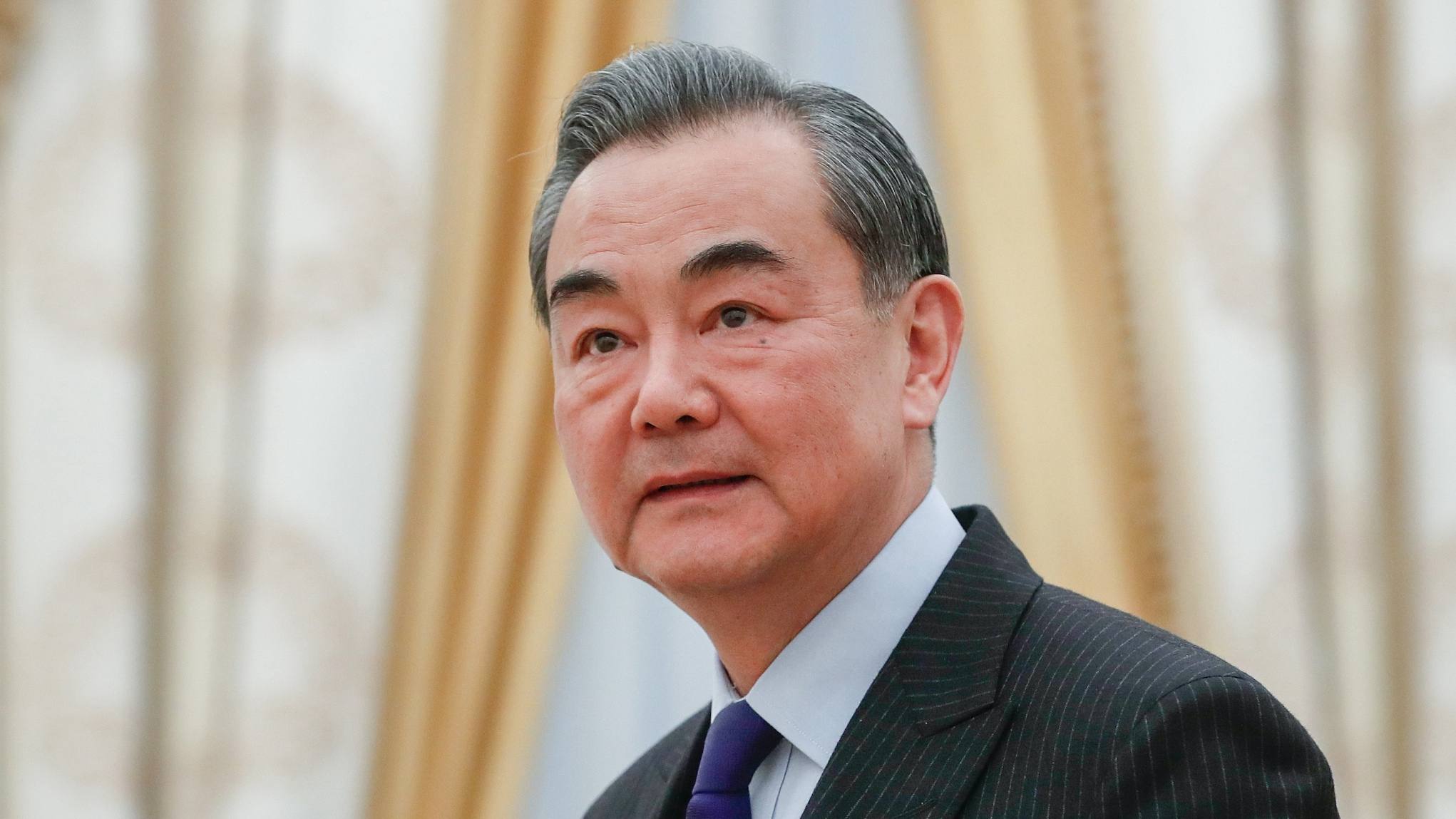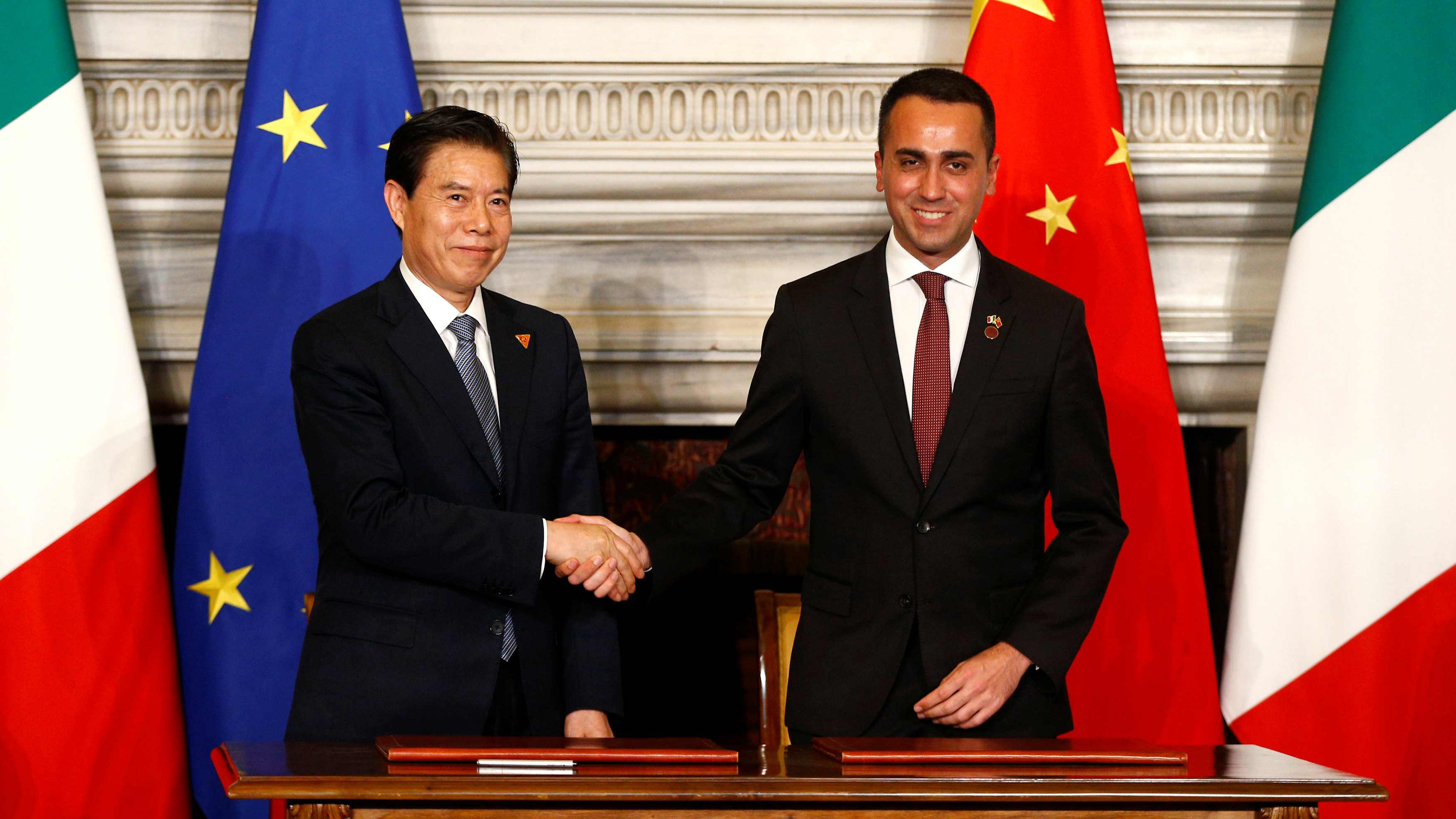
Chinese State Councilor and Foreign Minister Wang Yi. /VCG
Chinese State Councilor and Foreign Minister Wang Yi. /VCG
Editor's note: Hamzah Rifaat Hussain, a former visiting fellow at the Stimson Center in Washington and former assistant researcher at the Islamabad Policy Research Institute, is a TV anchor at Indus News in Pakistan. The article reflects the author's opinions and not necessarily those of CGTN.
In a telephone conversation between Chinese State Councilor and Foreign Minister Wang Yi and his Italian counterpart Antonio Tajani on November 21, China and Italy emphasized boosting cooperation in trade, technology and finance to take the bilateral relationship forward. By pushing forward with existing ties and injecting a new strategic partnership, this can yield dividends for the respective peoples of both countries. The broadening of the comprehensive strategic partnership is the key to strengthen cooperation in finance, trade, economy and technology.
The views of both foreign ministers come at an opportune time. The bilateral relationship has remained on a firm footing since Prime Minister Giorgia Meloni won the Italian elections in September 2022. Her exchange with President Xi Jinping on the sidelines of the G20 summit in Bali, provided strategic guidance for the development of relations, which included capitalizing on the China-Italy Government Committee as a historical precedent for scientific, environmental and regional themes of common interest.
One such example of historical precedents was in 2013, when Italy and China issued a Joint Communique with former Foreign Minister of Italy Emma Bonino and Foreig Minister Wang Yi covering areas such as joint productive associations on matters related to the reform of the UN Security Council and increasing reciprocal investments in biomedicine, shipbuilding, hydrocarbon fuel exploration and energy efficiency. Accordingly, the spirit of the China-Italy Government Committee should be carried forward in 2022.
The trajectory of trade ties has stood positive prior to the Ukraine war. Italy-China trade hit a record high of $73.95 billion in 2021, which was up by 34.1 percent from the previous year. With the Ukraine war having a negative impact on global supply chains and an impending economic crisis across Europe looming, it is critical that the bilateral relationship remains interdependent as mentioned by Foreign Minister Wang Yi lauded both the European Union as a comprehensive strategic partner of China and encouraged Italian enterprises to invest in China and vice versa on Monday.
Furthermore, the comprehensive strategic partnership can be boosted by building on increased mutual trust and historic understandings. Alongside the trading potential to offset negative economic shocks globally, lessons can be drawn from President Xi Jinping and Italian President Sergio Mattarella emphasizing on seeking common ground and shelving differences during President Xi's congratulatory message to his Italian counterpart for his reelection as President of Italy in February 2022. The positive momentum at the state level in 2022 must be carried forward in the absence of politics, coercion or misunderstandings for the two countries to benefit in the long run.

Chinese Commerce Minister Zhong Shan and Italian Minister of Labor and Industry Luigi Di Maio shake hands after signing trade agreements at Villa Madama in Rome, Italy, March 23, 2019. /Reuters
Chinese Commerce Minister Zhong Shan and Italian Minister of Labor and Industry Luigi Di Maio shake hands after signing trade agreements at Villa Madama in Rome, Italy, March 23, 2019. /Reuters
Wang Yi reaffirmed China's policy on Europe: Beijing's orientation towards Rome is consistent and anchored in opening up for win-win cooperation such as allowing Italian exports that contribute to energy transitions and green development, to benefit from unfettered access to the Chinese market. It is expected that the Meloni administration ensures that fair, non-discriminatory and transparent business environments are promoted at Italy's end, particularly through infrastructural projects falling under the Belt and Road Initiative (BRI).
Italy had signed onto the BRI as the first G7 state to have done so in 2019. Numerous opportunities have boosted its economic profile such as construction of the first semi-automated Vado Gateway Terminal at the end of the year, which boosted its maritime trade position in Europe.
In light of pressing global economic circumstances in this year, the comprehensive strategic partnership can help Italy and China identify opportunities such as Rome's quest in 2022 to diversify its energy requirements. This includes creating joint port projects that accommodate large liquefied gas supplies as part of the BRI.
The comprehensive strategic partnership can be strengthened if both sides view each other's political systems in a more inclusive manner. Cooperation must be strategic with greater emphasis on soft power diplomacy to offset misunderstanding. A prime example is China extending support to Italy to host the Winter Olympics and increasing flights for personnel exchanges. Such grassroots level understandings can complement existing high-level political exchanges to ensure that the relationship flourishes on multiple fronts.
By implementing the consensus of the two leaderships, capitalizing on positive trading trends and working towards sound, apolitical cooperation, both China and Italy can take their existing comprehensive strategic partnership to new heights.
(If you want to contribute and have specific expertise, please contact us at opinions@cgtn.com. Follow @thouse_opinions on Twitter to discover the latest commentaries in the CGTN Opinion Section.)